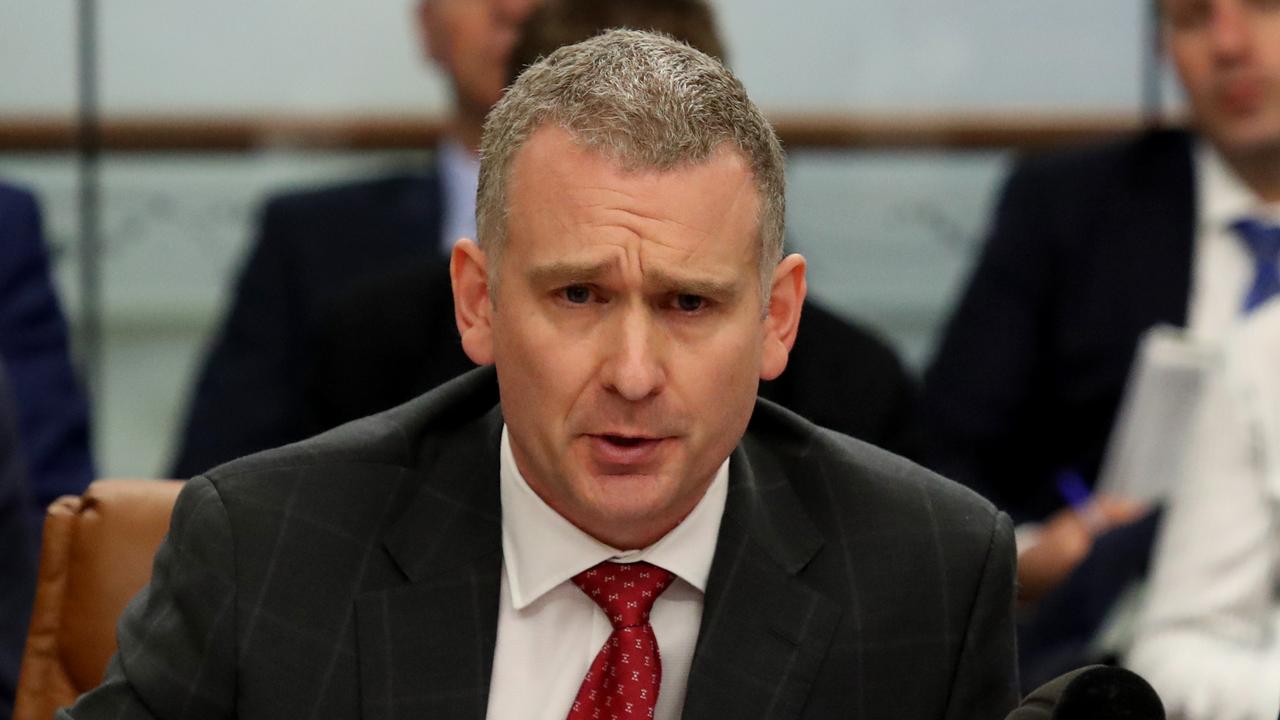NT Independent Commission Against Corruption exposes dodgy tender processes in Katherine Department of Infrastructure, Planning and Logistics
Allegations of leaking, favouritism, invoice splitting, undeclared gifts and conflicts of interest have rocked a Katherine government office, with the ICAC releasing his scathing report.

A watchdog’s investigation into the Katherine Department of Infrastructure, Planning and Logistics office has exposed critical “red flags” in processes “universally recognised as a high corruption risk activity”.
The NT Independent Commission Against Corruption said on Tuesday that DIPL had quietly released its long-awaited and scathing report into their activities in the Katherine office, which detailed issues in the tendering and procurement procedures and “an apparent absence of record keeping requirements”.
Commissioner Michael Riches said there were “red flags” at multiple stages of the tendering process, right from the initial drafting of government contract proposals.
“Public sector procurement activities are universally recognised as a high corruption risk activity,” Mr Riches said.
He said suppliers had alleged that tenders were framed to be “substantially limiting who could tender”, while others had “copy and paste” scopes “without consideration as to the fitness of that scope to the extant procurement”.
Suppliers also shared their suspicions that their confidential information about their bids were improperly disseminated.
Mr Riches said there were allegations that tenders were artificially underquoted, with the winning businesses able to add additional payments once the contract was locked in.

The ICAC also flagged three instances of “invoice splitting” where larger contracts appeared to have been ‘manipulated’ and listed as multiple transactions.
He said ICAC found a number of contract variations with “no or inadequate explanation for the variation”, and on two occasions the only explanation was “time constraints”.
There were six instances where a contract was extended for a period of six to 13 months, including tenders which were extended on multiple occasions.
Mr Riches repeated his concerns over conflict of interest management, stating that Katherine office “managers appear to have little responsibility to actively monitor and manage compliance with the policy and guidelines”.
The anti-corruption boss said there were three instances where a staff member was given an exemption by their boss to directly engage with a business they had a declared conflict of interest with — and awarded a $468,118 contract.
“Requiring all staff to disclose, as soon as reasonably practicable, an identified actual or perceived conflict of interest, is essential,” Mr Riches said.
The ICAC said there were a number of incidents where delegates “purported to make decisions outside of their delegation”.
Mr Riches said there was a lack of transparency around the tender shortlisting process, stating there was no conflict of interest disclosure requirements for that individual and no clarity around the assessment criteria.
“It is unclear why this might be left to a single individual to determine at the shortlisting stage,” he said.
Mr Riches said there was also evidence of “anomalies” over gifts and benefit reporting requirements, and recommended that DIPL establish a central register accessible by managers and delegates.
But critically even when conflicts are officially flagged, the review panels are not always aware of these issues in the process.
Mr Riches said 18 of the 20 procurement documents — including tender responses — were provided to panel members before conflict disclosure forms were completed.
“It is inappropriate for panel members to be provided the whole of the tender responses before a conflict of interest disclosure form is completed,” he said.
But Mr Riches said there were six instances where tender panel members clearly did not independently assess the responses.
“In one instance, purported independent assessment documents were largely identical between all panel members,” he said.
Mr Riches said the allegations of favouritism and retribution potentially stifled criticism to the corruption watchdog, with very few suppliers willing to offer responses.
“While not all suppliers indicated why they were unwilling, at least two suppliers stated to the review team that offering a response might compromise their prospects
of securing further government work,” he said.
“That is a view shared by other suppliers who did contribute to the review.”
Mr Riches made 18 recommendations, with DIPL expected to provide its response once his report was officially tabled to parliament.





